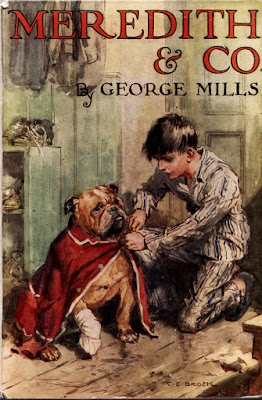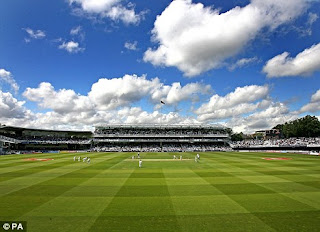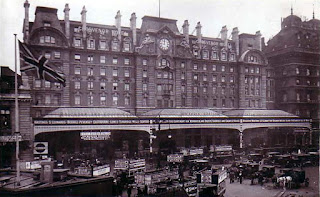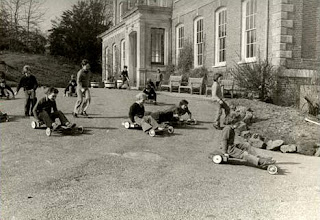
I've had some exciting information arrive this week, some of it from in and around Watford, England. Let's start with the thread I began receiving first.
A comment on the article "Mr. Egerton Clarke: Meet the Maternal Family" was recently posted by Lex Tucker on Tuesday, 1 November 2011. He wrote:
Frederick Ebenezer PIPER and his wife Mary nee MEACHER had:
Mabel Agnes 1874
Charles Frederick ca 1876
Horace Francis ca 1878
Albert Lucius Meacher ca 1880
Guy Reginald 1882 @ Hythe.
Fredk's wife seems to have been around 11 years his senior. He was 21 to her 32 when they married at Ivinghoe in Bucks in 1873.
According to the 1901 English Census, Mabel, a widow whose 6 y.o. daughter, Dorothy EDWARDS, was a 'British subject born in France' had married James ROY, a 43 y.o. widower. His 16 y.o. daughter Marjorie was also part of the household in Hove, Sussex. James was a 'manufacturing confectioner's manager' and may have had something to do with the fact that Albert PIPER, who was single and lived in Worthing, was a 'confectioner's agent'.
Horace and Guy were living with Charles (head of the household) and his wife in Teddington, Middlesex. Horace was a confectioner (James again?) and Guy a florist.
Thank you very much for the information, Lex!
While the above does not directly play into our story of George Mills, it does flesh out more of the the family history of George's dear friend, Egerton Clarke. If I am reading it all correctly, Egerton would have had some 5 step-siblings from his father Percy Carmichael Clarke's first marriage to Mary Meacher.
 What we do not know is how close either Egerton or his mother, Emma Anna Piper Clarke [pictured, right, with Egerton], may have been—if at all—to the children of Percy Clarke's first marriage. The last child of Percy's first union was born around 1882 at Hythe, while Egerton was born in 1899 in Canterbury of a different mother, Emma Piper.
What we do not know is how close either Egerton or his mother, Emma Anna Piper Clarke [pictured, right, with Egerton], may have been—if at all—to the children of Percy Clarke's first marriage. The last child of Percy's first union was born around 1882 at Hythe, while Egerton was born in 1899 in Canterbury of a different mother, Emma Piper.While that difference between half-siblings was some 17 years (1882-1899), Hythe is only some 20 miles from Canterbury, and both just across the Channel from France, where Percy passed away at Dinard in 1902.
It is also notable that Hythe is just a handful of miles west of Folkestone along the coast, the latter being the locale in which Egerton Clarke penned the dedication to his first book of poetry, Kezil and Other Poems, while residing at The Grange in June, 1920, after having served in the First World War.
Egerton clearly had step-kin in the area. Does the fact that he wrote that dedication in Folkestone have more to do with the fact that Hythe was part of his family's geography, or the fact that he had just served in the Army Pay Corps, with nearby Dover the location of a major WWI pay centre where friend George Mills had been stationed after Egerton's medical discharge from the service in 1918? Dover is just over 5 miles to the east of Folkestone.
Much of this requires speculation. Does having a family member born in Hythe make the military connection between Folkestone and Dover somewhat less meaningful? It's difficult to be certain, but we do know that Egerton's mother, with whom he was never truly close, seemingly was out of the picture and residing with her family in Hertfordshire at the time.
Had there always been a deeper connection with his father's family, especially during the time he attended St Edmund's School in Kent, than we previously have suspected?
This new information isn't earth-shattering, but in light of wondering about the relation between Egerton and George Mills, as well as the relationship between Egerton and his mother and her family, it is extremely interesting.
I forwarded Lex's comment to Janine LaForestier, whom you may remember being Egerton Clarke's granddaughter. She already has provided a wealth of information regarding the family's history.
Her reply, dated 3 November:
This is wonderful. I have photos of a couple of Pipers - always wanted to know the approximate ages of these folk. They certainly look ancient - I love this puzzle. Wonderful.
All well at this end - still going through boxes of books.
 Funny you should write - I was reading some of Egerton's poems this morning. One he wrote for my mother when she was three.
Funny you should write - I was reading some of Egerton's poems this morning. One he wrote for my mother when she was three. Also
Came across a photo of a man in uniform - on the back it states "Therese's fiance Lancashire Fusilier - killed in battle 1916-17. So my grandmother was engaged before she married Egerton. There must have been a tremendous shortage of men her own age - hence the age difference between them.
On the radio I recently heard an author, Adam Hochschild, talking about his upcoming book, To End All Wars: A Story of Loyalty and Rebellion, 1914-1918 [left]. In his discussion, he mentioned the difficulty of having a generation of men in its collective prime winnowed down to a relative few due to wounds, amputations, shellshock, and death. It must have impacted the societal pas de deux of lovers in post-War England to a great degree, thereby affecting the eligibility of George Mills and Egerton Clarke, both veterans!
However, I also came upon this message in my mailbox just this morning, dated Saturday, November 05, 2011 7:11 PM:
Dear Harry
I have been forwarded all the information you have discovered about my family.
I know you have been discussing your research with my cousin Janine in Canada. I am another granddaughter of egerton and live in England. although I spent eight years in California I have been brought up and live very close to a great deal of the places mentioned our nearest town is Watford and I went to school in st Albans and walked past the flat where Emma piper (my great grandmother's) sister lived without to this day knowing of the connection. egerton and Emma did not ever spend time in work houses the institutions referred to are schools in today's language would be private schools for the well to do. Emma was living in France after her husband Percy died . there are pictures and I have Percy's bible. there is a lot of research that I have done on the genes reunited website if you are interested. egerton was well educated and in the class system that is still prevalent today would have been considered upper class. the class ranking is often accompanied by a lack of money either money lost or a lifestyle indulged in beyond means. the class being defined by social circles and education. egerton's became a publisher and the publishing career then passed on to my father.
I am curious to know why you have such an interest in this family and have spent so much time researching it. I think it is difficult from such a distance and a different culture to interpret some information and language and meanings change over time.
kind regards
Camilla Andrews
Great information! Thank you so much, Camilla, from whom we have heard before! We now know for sure that Emma Anna Piper Clarke, Egerton's mother, failed to be tallied by early 20th century census takers because she had remained abroad in France after Percy's death! Perhaps that was natural: Emma had married a much older man and, after his passing, still may have had much to learn about herself as both a person and a woman.
We found reference to Emma in French journal from the year 2000 regarding a man with the surname "Lawrence," but it seems that would not have been author and prolific poet D. H. Lawrence, who did not reside in France until after World War I. By 1917, Emma clearly was a resident of Bishops Stortford, Herts.
[The addresses referred to in the journal article mentioned above are part of the region of France across from Dover, Folkestone, Hythe, and Canterbury (Go to: http://www.webcamgalore.com/EN/webcam/France/Veulettes-sur-Mer/5624.html).]
 I feel, however, I must have offended Camilla more than just a little, and for that I apologize. My suppositions—that there may have been work houses involved in Watford and Blean—arose simply because of the fewer facts available to me at that time.
I feel, however, I must have offended Camilla more than just a little, and for that I apologize. My suppositions—that there may have been work houses involved in Watford and Blean—arose simply because of the fewer facts available to me at that time.Egerton attended school in a town with a workhouse, Blean [right], which for purposes of the 1911 UK census was the location of St Edmund's School, not Canterbury. Citing Blean as the location of his residence without the census documents having named the "institution" (not "school") itself, I will admit, made me wonder where Egerton might have been housed and/or educated and under what circumstances, especially given that he recently had been orphaned.
In addition, the school's website describes its history thusly: "The name of the school was changed from the Clergy Orphan School to St Edmund's School in 1897." Egerton's circumstances as an orphan of a clergyman (and father of over a half-dozen children), combined with Egerton's attendance at a school that had recently been so charitably affiliated (the school was funded by the Clergy Orphan Society), never led me to believe that he was reared in an institution that was actually "in today's language… [a] private school for the well to do."
In addition, I also was misled to a great degree by this information: "1902 THE CLERGY ORPHAN CORPORATION, Under the Patronage of his majesty the King. President - The Lord Archbishop of Canterbury. Vice-President - The Earl of Cranbrook. Treasurer - E. Lonsdale Beckwith, Esq.
"These Schools, founded in 1749, are for the absolutely free maintenance, clothing, and education of the Orphan (fatherless) Children of the Clergy of the Established Church of England and Wales.
"3228 children have been admitted to the benefits of these Schools which now contain 240. Of this number 132 boys are being educated in St. Edmund's school in Canterbury."
Admittedly, I laboured under the assumption that young Egerton must have been one of those "absolutely free maintenance, clothing, and education" boys, and humbly propose that could have been a somewhat logical assumption, at least from my position at "such a distance and [from] a different culture."
 Given the information to which I had access, St Edmund's [left] appeared to me then to have been a charitable school for orphans of men who typically would not have been wealthy. And given what one reads in fiction from the era (at least in classic and popular English literature available to us here in the States), one would assume that even beneficed Anglican clerics who were not fortunate enough to have come from wealthy families before taking their Holy Orders, and who subsequently sired more than just a couple of children, would not have been considered widely as having been 'well-to-do.'
Given the information to which I had access, St Edmund's [left] appeared to me then to have been a charitable school for orphans of men who typically would not have been wealthy. And given what one reads in fiction from the era (at least in classic and popular English literature available to us here in the States), one would assume that even beneficed Anglican clerics who were not fortunate enough to have come from wealthy families before taking their Holy Orders, and who subsequently sired more than just a couple of children, would not have been considered widely as having been 'well-to-do.'I guess that's why they call it fiction, though, and I stand corrected if I have misconstrued all of the above.
From a purely personal perspective, I will add that one of the greatest 'perks' gained by doing this research is, indeed, gaining some insight into the culture of my ancestors, from "such a distance and a different culture." Hence, I am obliged to anyone who 'sets me straight' in these matters. It's all a work in progress!
Finally, to satiate Camilla's curiosity, my primary interest in her family is in regard to George Mills, a man no one seems to recall very much about, but who was well-educated (as was Egerton Clarke), who wrote children's books (as did Egerton Clarke), was the son of an Anglican vicar (as was Egerton Clarke), who had served in the Army Pay Corps during WWI (as did Egerton Clarke), who had health-issues in the service (as did Egerton Clarke), who later attended Oxford (as did Egerton Clarke), who did not earn a degree from Oxford in the end (as Egerton Cklarke did not), who became a devout Catholic against his family's wishes (as did Egerton Clarke), who never wrote another book after publishing religious texts with Burns, Oates, and Washbourne in the late 1930s (as did Egerton Clarke), and whose health fared poorly during the Second World War (as did Egerton Clarke's), although Mills survived the conflict.
Therefore, I truly hope it does not seem unnatural for me to wonder and wish to learn about the life of a gentleman acquainted with, and who had so very much in common with, George Mills. And if reading any of the suppositions I have made along the way—in the midst of this research—has offended anyone retrospectively, for that I do apologize.
Next time, there'll be more word from Watford, England. However, then it will regard conirmation of a former place of employment for George Mills and a potential link to his teaching career in Glion, Switzerland. See you then!
































![Meredith and Co. [1933] by George Mills](https://blogger.googleusercontent.com/img/b/R29vZ2xl/AVvXsEjlUeRNPnH8Xd8JT59QdtabQHRI6DI6Hqew57i6qixjOL3LjgUD9g22o3-wNlmBya36D5-6KZXX-sxLnktAfEqjlvTmdwyiIL2K6VHOGW2Wq9Pe8_oFGknENfVE1Xrkdj0b8FYXTz_6SMg/s1600-r/sm_meredith_1933.JPG)
![King Willow [1938] by George Mills](https://blogger.googleusercontent.com/img/b/R29vZ2xl/AVvXsEgiz_iaQjinIbVw6yQ-W4hwx6wGJwMQH9azCs3Qacp9eX627B7Eq9hMn1wlHLzlkbcflHRWM8VcPX-1uteKbs4LA5q5Oq69WhrnhzBQLjpseK_M34PSoOOhTZ96EfVAGFehG53gZ0M4EvU/s1600-r/sm_1938.JPG)
![Minor and Major [1939] by George Mills](https://blogger.googleusercontent.com/img/b/R29vZ2xl/AVvXsEgH5nj4Q6BNpzVEb1vyJeGV6ikuN4SFAyDa-jypIgbvdrxqcjHkNxqjrXH7ptZmge7oTTpn5QjAI0yCJPdI-fIzooCDD1TAA3RDxO9jzLcU3QOIhBWKiKNz6CPjCSTZgIPd9_4zM7LLpAw/s1600-r/sm_1939.JPG)
![Meredith and Co. [1950] by George Mills](https://blogger.googleusercontent.com/img/b/R29vZ2xl/AVvXsEgm_JPAXPpX0wb8bDkjYG67Sg1HePiPhRP6b9oUMWvkJhiW6XJzmxTQ7TBepfxpPgRrFNCRuumYRj-SAfU9Kw-uDsbO5HBtyxfQfClHVMJxJUkDpbkrCPhzpC4H_g_ctlirgnSla4vX1EQ/s1600-r/sm_1950.JPG)
![Meredith and Co. [1957?] by George Mills](https://blogger.googleusercontent.com/img/b/R29vZ2xl/AVvXsEg0zRm3-CCmA8r2RrBmrACDvmxJjoBjfxUoPI9yc6NWu1BZ3dd89ZvCixmmKZe1ma0QiDIrsDZNqf-8h1egh0JLiRYHagXAqQ1UknWPy6SksK76psYPcEMLGa_Aj7wo2vMFPo0aMdcx_pg/s1600-r/sm_meredith.JPG)












